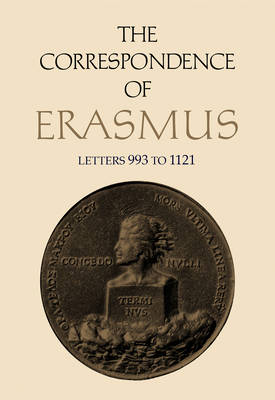
- Retrait gratuit dans votre magasin Club
- 7.000.000 titres dans notre catalogue
- Payer en toute sécurité
- Toujours un magasin près de chez vous
- Retrait gratuit dans votre magasin Club
- 7.000.000 titres dans notre catalogue
- Payer en toute sécurité
- Toujours un magasin près de chez vous
Description
A painful time in Erasmus' life is reflected in this volume of letters. As the two volumes immediately previous to this one indicated, Erasmus' first two years in Louvain were agreeable, productive, and carefree. But the spirit of congenial scholarship in which he lived at this time was gradually giving way to bitter conflict and controversy: Louvain was merely a microcosm of Erasmus' entire world, which was undergoing great strain. The exuberant expectancy of a Golden Age of civilized Christianity was yielding to the bleak prospect of helplessly watching the progress of what Erasmus termed the 'Lutherana tragoedia, ' a play that he felt would end in catastrophe.
The reader of this volume encounters a troubled Erasmus, who fights back constantly and unhappily against innuendo and open attacks, especially against the accusation that he is in connivance with Luther. His literary production and scholarly research suffer considerably as a result of his preoccupation and the general turmoil. Erasmus' conflicts with two younger theologians in particular. Jacobus Latomus and Edward Lee, loom large in this volume, and his over-reaction to Lee's criticisms shows him to be his own worst enemy.
The volume features several memorable letters by Thomas More that testify to his integrity and clear-sightedness, his capacity for sober self-assessment and restraint combined with charity. It also contains one of Erasmus' most famous letters, Ep 999, which paints a subtle and sparkling pen portrait of More, the man and the Christian.
Volume 7 of the Collected Works of Erasmus series.
Spécifications
Parties prenantes
- Auteur(s) :
- Editeur:
Contenu
- Nombre de pages :
- 468
- Langue:
- Anglais
- Collection :
- Tome:
- n° 7
Caractéristiques
- EAN:
- 9780802056078
- Date de parution :
- 01-06-87
- Format:
- Livre relié
- Format numérique:
- Genaaid
- Dimensions :
- 179 mm x 252 mm
- Poids :
- 1052 g







